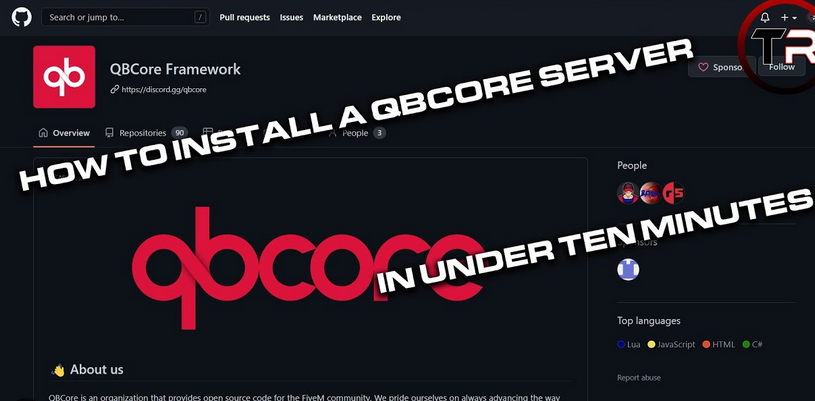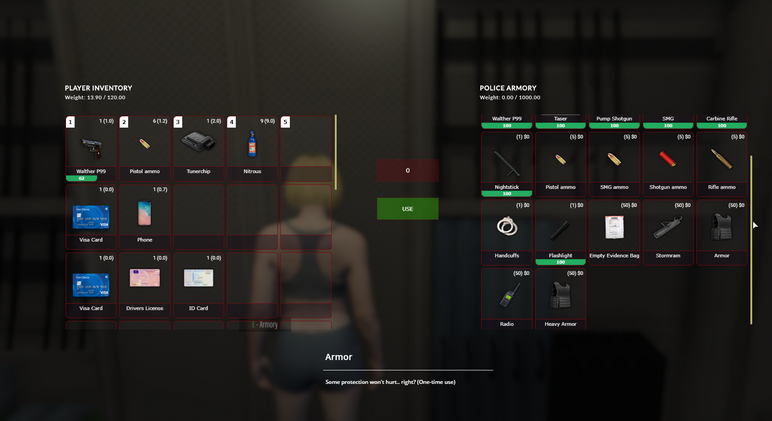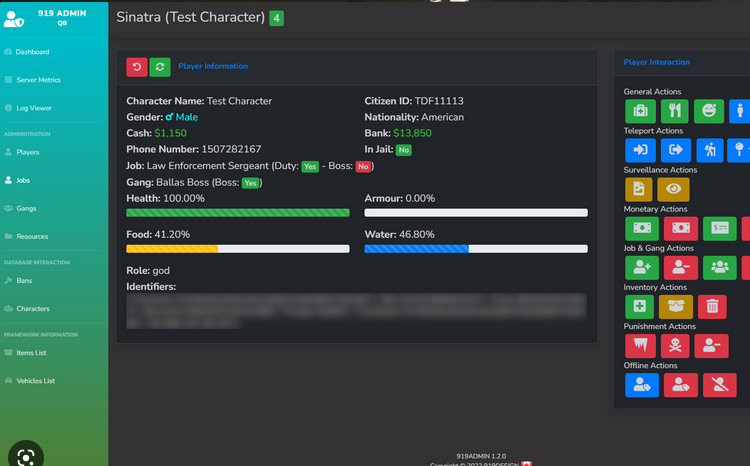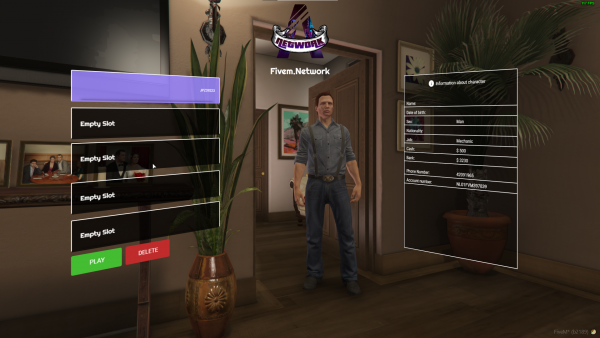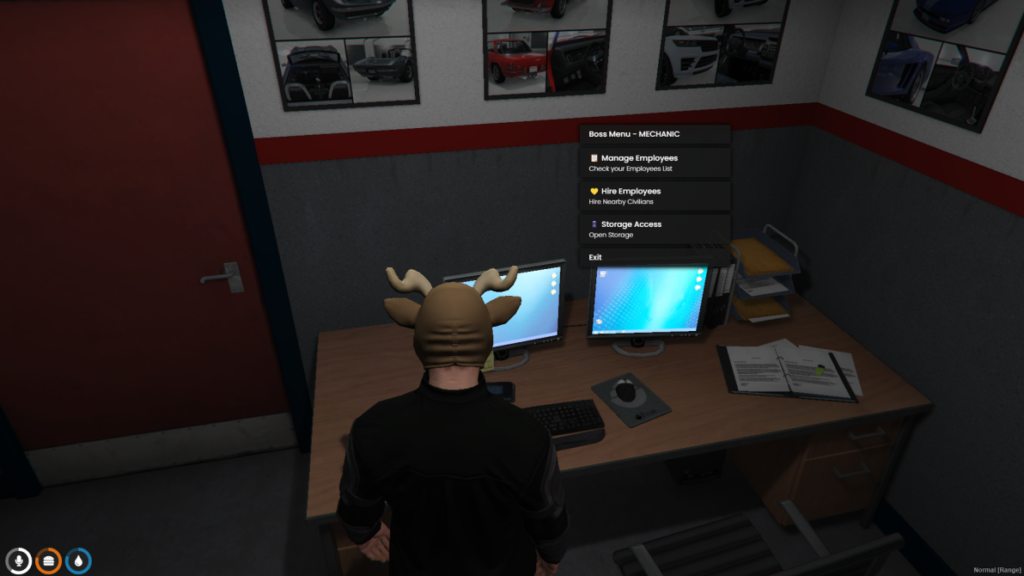Managing the economy in a QBCore server is critical to creating a balanced and engaging experience for players. A well-maintained economy ensures fair gameplay, rewards for effort, and a sustainable role-playing environment. In this guide, we’ll explore the essentials of managing the QBCore economy, from setting up a balanced system to customizing payouts and preventing inflation.
Table of Contents
1. Introduction to QBCore Economy

The QBCore framework includes an in-game economy system that simulates a real-world financial environment where players can earn, spend, and save money. The core features of this system include jobs, businesses, item pricing, and player-owned properties. Proper management of these elements ensures that the gameplay remains challenging but fair, encouraging long-term player engagement.
2. Setting Up the In-Game Economy
The foundation of managing the QBCore economy starts with initial setup. When configuring your server’s economy, there are several key files you need to focus on:
server.cfg: The main configuration file for your server, where you define the base economy settings.qb-core/shared.lua: This file allows you to adjust global variables for money, bank transfers, and overall financial thresholds.
In this stage, you can establish the starting amount of money each player receives and configure global tax rates, transaction limits, and whether players can share or transfer money between one another.
3. Balancing Job Payouts

One of the most important aspects of the QBCore economy is balancing the payouts of your FiveM jobs. Players need to earn a fair wage based on the difficulty and time commitment of the job.
Steps to Adjust Job Payouts:
- Navigate to
qb-core/jobs.lua: In this file, you will find the configuration for each job’s earnings. - Set Payouts per Job: Adjust the amount of money each job pays players. For example:luaCode kopieren
Config.Jobs['police'] = { minSalary = 1000, maxSalary = 3000 }Ensure that essential jobs such as police officers, mechanics, and EMTs are rewarded adequately, while keeping balance across all available jobs. - Consider Pay Frequency: You can configure whether jobs pay per action (such as treating a patient) or per shift. Consider weekly or daily salaries for higher-paying jobs to maintain balance.
- Avoid Overpowered Jobs: Be cautious not to make any job too lucrative, as this may destabilize the economy. Monitor feedback from players and tweak payouts when necessary.
4. Customizing Item Prices
Every item in the game, from food to weapons, should have a logical and consistent price that aligns with the overall economy. Pricing too high can make the game frustrating, while pricing too low can lead to inflation.
Adjusting Item Prices:
- Locate the
qb-shops/config.luafile: This file contains all the item prices for shops. - Set Logical Prices: Ensure that basic necessities like food, water, and gas are affordable, but luxuries like high-end vehicles or weapons should be expensive.luaCode kopieren
Config.Items = { ['water'] = {price = 10}, ['burger'] = {price = 50}, ['weapon_pistol'] = {price = 5000} } - Adjust for Rarity: For items that are harder to find or craft, increase the price to reflect their rarity in the game.
- Test Pricing: Once the prices are set, run simulations or test with players to check whether the prices feel fair and balanced.
5. Managing Inflation and Deflation
One of the biggest challenges in managing the QBCore economy is maintaining a stable balance between inflation (too much money circulating) and deflation (too little money). Here’s how you can control both:
Controlling Inflation:
- Taxation: Implementing taxes on large transactions or expensive items can help prevent inflation. Set a tax on vehicle purchases, high-end items, or business earnings.
- Sinkholes: Introduce money sinks like fines, repair fees, or donations to encourage players to spend their money, removing it from the economy.
Preventing Deflation:
- Adjusting Job Payouts: If players are not earning enough, increase job payouts slightly to maintain a healthy flow of cash.
- Lowering Prices: If items are too expensive for players to afford, you may need to adjust prices down to create more spending opportunities.
6. Integrating Banking Systems
Many QBCore servers include a banking system, where players can deposit, withdraw, and transfer money. This adds realism to the economy and helps keep track of financial transactions.
Setting Up a Bank:
qb-banking: Install and configure the QBCore banking system, where you can adjust interest rates, overdraft penalties, and transfer fees.- Monitor Bank Accounts: Keep an eye on large accumulations of wealth to ensure no exploits are being used. Implement limits if necessary.
7. Handling Economy Logs and Statistics
Tracking the flow of money in your server’s economy is essential for maintaining balance. Use logging tools to monitor earnings, expenses, and transactions.
- QBCore Logger: Integrate logging scripts to keep track of how much money players are earning and spending. This helps in identifying potential exploits or unbalanced payouts.
- View Player Transactions: Regularly review transaction logs to ensure players are not abusing mechanics to earn disproportionate amounts of money.
8. Advanced Tips for Economy Management
- Regular Audits: Periodically review your server’s economy to ensure balance. Adjust prices and payouts based on server feedback and trends.
- Player Businesses: Encourage players to start businesses, but monitor these closely to ensure that no one is gaining an unfair advantage. Implement taxes on business profits to prevent over-accumulation of wealth.
- Dynamic Economy Events: Host server events such as sales or government bailouts to help reset or balance the economy when needed.
9. Conclusion
Effectively managing the QBCore economy is a critical part of creating a sustainable and enjoyable server. By balancing job payouts, setting fair item prices, and controlling inflation, you can ensure your server’s economy remains functional and fun. Remember to periodically review and tweak the system to keep players engaged and maintain fairness across all levels.
